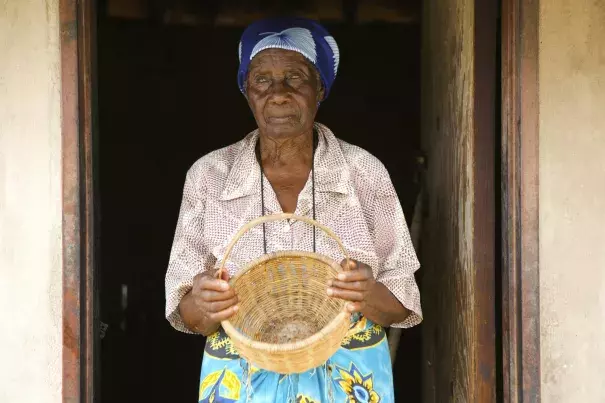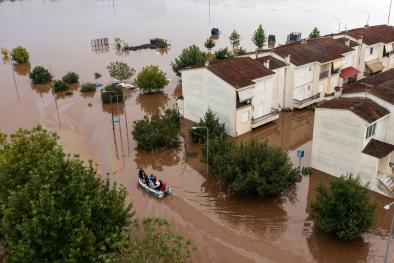Zimbabwe's rural elderly battle hunger amid severe drought

Climate Signals Summary: Climate change is increasing drought risk in certain regions by increasing temperatures and lessening precipitation, or making it occur in more extreme bursts.
Article Excerpt: Zimbabwe is among the world’s most food insecure countries with more than half of the its 15 million people in need of food assistance, according to U.N.’s World Food Program.
A drought, described by experts as the most severe in decades and worsened by climate change, has seen large numbers of rural farmers unable to grow adequate food.
A debilitating economic crisis that has seen Zimbabwe’s annual inflation spike to 500% — second only to that in Venezuela — has worsened the situation and left millions of people desperate for survival.
In Mudzi, about 230 kilometers (143 miles) northeast of Harare, the situation is palpably dire and it has especially hit the elderly. Making up about 4% of Zimbabwe’s population, they are often neglected by family members, don’t get enough support from the government and must keep farming their small patches of land. Many are reliant upon international food aid.
...
The international food assistance is targeting “the most vulnerable groups, the elderly whom we expect not to work in the fields or to get enough harvest to take them throughout the year,” said Never Chituwu, an official with World Vision, an international charity that participated in the food distribution. He added that many elderly are taking care of orphans.
Of the 134,000 people in Mudzi district, more than half are in urgent need of food assistance, said the local district administrator, Robert Mzezewa, adding that many younger people have resorted to the often violent small-scale gold mining to survive.
...
Rains have been sparse this year and staple crops such as maize and sorghum are stunted and wilting across the district, a few kilometers (miles) from Mozambique, another country hard hit by the drought. Many people did not even plant due to the erratic rains and large swathes of land lie fallow.
“It is becoming difficult to depend on the rains these days. Mudzi had rains in December, followed by a sudden dry spell lasting 23 days. The rains returned briefly in January, but it was too late for the crops, and farmers,” said Godfrey Mboweni, a government agronomist.
“As climate change is intensifying, Zimbabwe and indeed all of southern Africa is a prime example of people suffering most from climate change,” said Neville, the WFP officer.
Related Content



